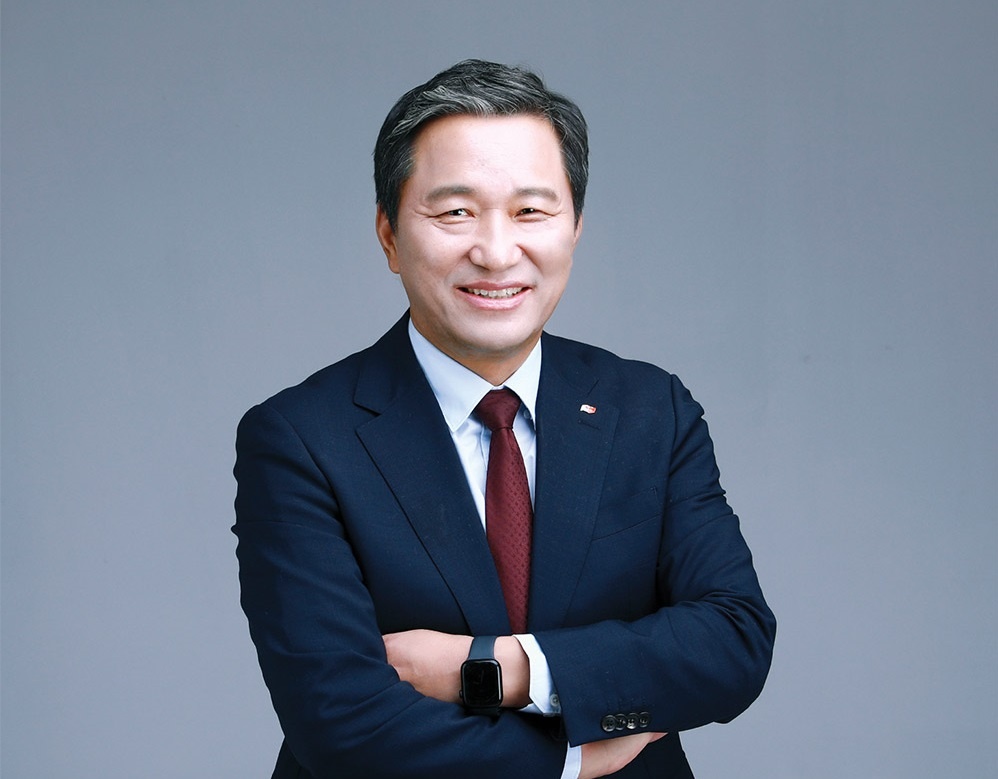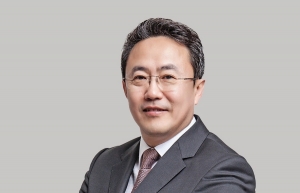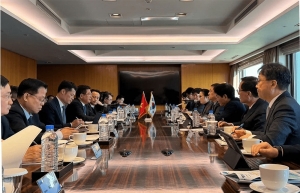Flexible policies attractive to South Korean groups
How do you assess Vietnam’s opportunities in attracting capital flows in the high-tech and semiconductor sectors, particularly from South Korean investors?
 |
| Ko Tae Yeon, new chairman of the Korea Chamber of Business in Vietnam |
South Korean enterprises are ready to contribute to Vietnam’s development with their capabilities and experience in various fields, including AI, semiconductors, and green energy. Based on the trust and achievements that the two countries have built so far, we believe that if the Vietnamese government takes clearer steps to attract South Korean businesses, Vietnam will undoubtedly quickly draw funding in this sector.
However, some South Korean investors have expressed concerns about the US reciprocal tax policy on imported goods. Accordingly, this tax would be applied uniformly across a wide range of products instead of varying rates for different product segments as is currently the case. This move would disadvantage and reduce the competitiveness of goods exported from Vietnam to the United States.
Thus, manufacturers are proposing that the Vietnamese government adopt flexible counter policies to mitigate the impact of this situation.
Could you share specifics about the flexible counter policies that the South Korean business community hopes for?
The US reciprocal tax issue has emerged and is predicted to take effect in early April, with the possibility of negotiations or adjustments between countries before that time. As one of the countries with the highest trade surpluses with the US, goods imported from Vietnam cannot avoid the impact of this tariff issue. Therefore, the Vietnamese government needs to propose various solutions to the US government to address the trade imbalance.
In addition, Vietnam also needs to review and adjust its tariff schedules to reduce the burden of reciprocal taxes. Furthermore, Vietnam has committed to importing liquefied natural gas from the US, but to implement this clearly, such power plants are necessary.
If South Korean companies participate in building these plants, it would create good cooperation opportunities among South Korea, the US, and Vietnam. At the same time, this would help address Vietnam’s electricity shortages during the summer, contributing to the country’s stable growth.
Vietnam is intensifying efforts to engage foreign investment in AI and semiconductors. What policy adjustments could pave the way for capital flows into this sector?
We are eagerly anticipating the issuance of the Law on Digital Technology Industry being drafted by the Ministry of Science and Technology.
Fundamentally, this law should be an investment-encouraging and infrastructure-supporting legislation to attract investment. I believe the law is being developed in this direction.
The content regarding human resource training needs to be clearly regulated. It should not only stop at government-led training initiatives, but also expand through policies encouraging businesses to participate with various incentives. Additionally, we hope the law will include practical measures, such as establishing a 24/7 logistics and customs system to suit the specific needs of the semiconductor industry, easing regulations on importing used equipment, and simplifying visa conditions.
Moreover, companies also hope for a reduction in VAT refund processing times. VAT refunds directly affect corporate cash flow, so predictability is the most critical factor. If refunds could be processed within three months from the month they arise, that would be ideal, and at the latest, they should be completed within six months. This requires clear policies and effective implementation.
Additionally, in cases of disputes over VAT refunds in practice, proactive intervention by central authorities to resolve issues is crucial. To achieve this, I believe establishing a consultation and resolution centre under the central government, where businesses can directly receive assistance in addressing difficulties on this issue, would be warmly welcomed by the business community.
The Vietnamese government has organised numerous meetings and forums to listen to proposals from foreign investors. Which recommendations from the South Korean community have been swiftly addressed, and what remains unresolved?
A recent event where Prime Minister Pham Minh Chinh chaired a discussion with major South Korean corporations and enterprises was very timely and meaningful. I sincerely thank the prime minister and relevant authorities, and I hope such dialogues to address business difficulties will continue to be held more proactively.
Through this meeting, the basic principles related to the production of electronic cigarettes – a significant issue for South Korean firms – were clarified on maintaining production on the condition of export. We hope the official approval process will be expedited so that manufacturing companies can commence operations.
Furthermore, the Ministry of Industry and Trade held a working session on transportation and logistics issues, and the northern province of Bac Ninh supported a seminar on solutions for training, utilising, and developing personnel.
However, many issues still need resolution and require cooperation with local agencies to find prompt solutions. They include VAT refunds, ensuring financing for energy projects, developing policies for green projects, and accelerating the licensing process for project approvals.
 | Investment from South Korea still standing the test of time Trade ties between Vietnam and South Korea have been robust for many years. Choi Bundo, chairman of the Korean Chamber of Commerce in Vietnam, delved deeper into the current and future relations with VIR’s Bich Ngoc. |
 | Haiphong: hugely enticing for major funds from South Korean investors Haiphong serves as a magnet to draw in investment influx from South Korean investors. Ko Tae Yeon, general director of Heesung Electronics Vietnam, explains how the northern port city can capitalise on its advantages in infrastructure, logistics, and more. |
 | Koreans investing across crucial sectors Giant South Korean groups are opening up new cooperation opportunities in rare mining, power, and more across Vietnam. |
What the stars mean:
★ Poor ★ ★ Promising ★★★ Good ★★★★ Very good ★★★★★ Exceptional
Related Contents
Latest News
More News
- Digital shift reshaping Vietnam’s real estate brokerages (December 31, 2025 | 18:54)
- Allen & Gledhill recognised as Outstanding M&A Advisory Firm (December 18, 2025 | 14:19)
- Inside Lego Manufacturing Vietnam (December 18, 2025 | 11:45)
- The next leap in Cloud AI (December 11, 2025 | 18:19)
- Vietnam’s telecom industry: the next stage of growth (December 11, 2025 | 18:18)
- Five tech predictions for 2026 and beyond: new era of AI (December 11, 2025 | 18:16)
- CONINCO announces new chairman and CEO (December 10, 2025 | 11:00)
- How AWS is powering the next-gen data era (December 09, 2025 | 13:14)
- Outlook in M&A solid for Singapore (December 08, 2025 | 10:31)
- Vietnamese firms are resetting their strategy for global markets (December 05, 2025 | 17:04)

 Tag:
Tag:



















 Mobile Version
Mobile Version